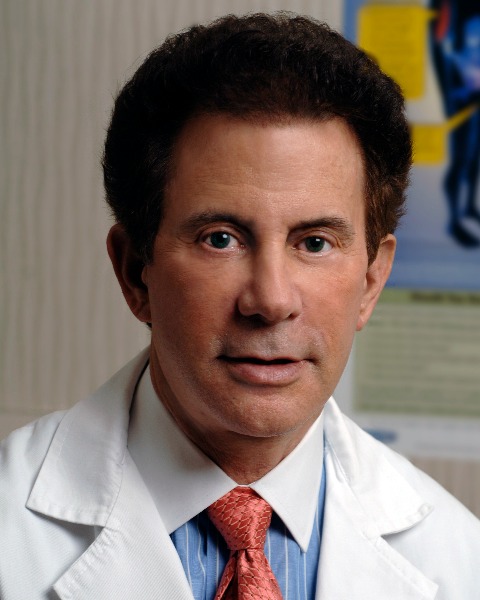Back
Introduction: Previous studies have documented hypogonadal serum hormone levels in men regularly involved in non-standard shift work (NSSW) schedules. This work schedule is defined as working outside of the normal 7am-6pm hours. Additionally, past literature have shown a marked correlation between sleep deprivation and cancer risk, prompting us to investigate the relationship between NSSW schedules and cancer. The objective of this study is to explore the impact of NSSW schedules on the incidence of cancer as well as its impact on urologic markers.
Methods: A retrospective chart review was conducted, having identified over 3000 patients from the electronic medical records of a university hospital. The accrued patient cohort included both those who were involved in NSSW schedules and those who were not. The database was then linked to the Texas Cancer Registry to identify which of these patients have had a documented cancer diagnosis since 1995. The data from the registry included the age of cancer diagnosis, primary site, histology type, and metastatic status. The statistical analyses were performed using SPSS software.
Results: The statistical analysis revealed that the average age of cancer diagnosis is more than six years younger in NSSW versus those with regular work schedules. Similarly, non-standard shift workers experienced higher levels of prostate-specific antigens (4.942 ng/mL vs. 1.204 ng/mL). As expected from previous studies, non-standard shift workers faced significantly lower levels of endogenous testosterone (358.6 ng/dL vs 618.6 ng/dL). Furthermore, the NSSW population’s incidence of cancer is roughly double the age-adjusted cancer incidence rate of men in Texas. Of the NSSW who had a cancer diagnosis (n=45), the most common cancer primary sites were the male genital organs (n=16), the urinary tract (n=5), and the hematopoietic and reticuloendothelial systems (n=5).
Conclusions: Our study has demonstrated that NSSW are at higher risk of developing cancer than the general male population. NSSW who already represent a clinically vulnerable population, may be somewhat immunocompromised as evidenced by their increased cancer incidence. The increased incidence of urogenital cancers within the NSSW group emphasizes the greater need of urologic focus for these men in clinical practice. SOURCE OF
Funding: None.

Moderated Poster Session
Session: MP33: Penile and Testicular Cancer I
MP33-10: Increased Genitourinary Cancer Incidence and Lower Testosterone Levels are Found in Men Performing Non-Standard Shift Work
Saturday, April 29, 2023
9:30 AM – 11:30 AM CST
Location: S404C

Larry I. Lipshultz, MD
Professor of Urology
Baylor College of Medicine
Poster Presenter(s)
Introduction: Previous studies have documented hypogonadal serum hormone levels in men regularly involved in non-standard shift work (NSSW) schedules. This work schedule is defined as working outside of the normal 7am-6pm hours. Additionally, past literature have shown a marked correlation between sleep deprivation and cancer risk, prompting us to investigate the relationship between NSSW schedules and cancer. The objective of this study is to explore the impact of NSSW schedules on the incidence of cancer as well as its impact on urologic markers.
Methods: A retrospective chart review was conducted, having identified over 3000 patients from the electronic medical records of a university hospital. The accrued patient cohort included both those who were involved in NSSW schedules and those who were not. The database was then linked to the Texas Cancer Registry to identify which of these patients have had a documented cancer diagnosis since 1995. The data from the registry included the age of cancer diagnosis, primary site, histology type, and metastatic status. The statistical analyses were performed using SPSS software.
Results: The statistical analysis revealed that the average age of cancer diagnosis is more than six years younger in NSSW versus those with regular work schedules. Similarly, non-standard shift workers experienced higher levels of prostate-specific antigens (4.942 ng/mL vs. 1.204 ng/mL). As expected from previous studies, non-standard shift workers faced significantly lower levels of endogenous testosterone (358.6 ng/dL vs 618.6 ng/dL). Furthermore, the NSSW population’s incidence of cancer is roughly double the age-adjusted cancer incidence rate of men in Texas. Of the NSSW who had a cancer diagnosis (n=45), the most common cancer primary sites were the male genital organs (n=16), the urinary tract (n=5), and the hematopoietic and reticuloendothelial systems (n=5).
Conclusions: Our study has demonstrated that NSSW are at higher risk of developing cancer than the general male population. NSSW who already represent a clinically vulnerable population, may be somewhat immunocompromised as evidenced by their increased cancer incidence. The increased incidence of urogenital cancers within the NSSW group emphasizes the greater need of urologic focus for these men in clinical practice. SOURCE OF
Funding: None.

